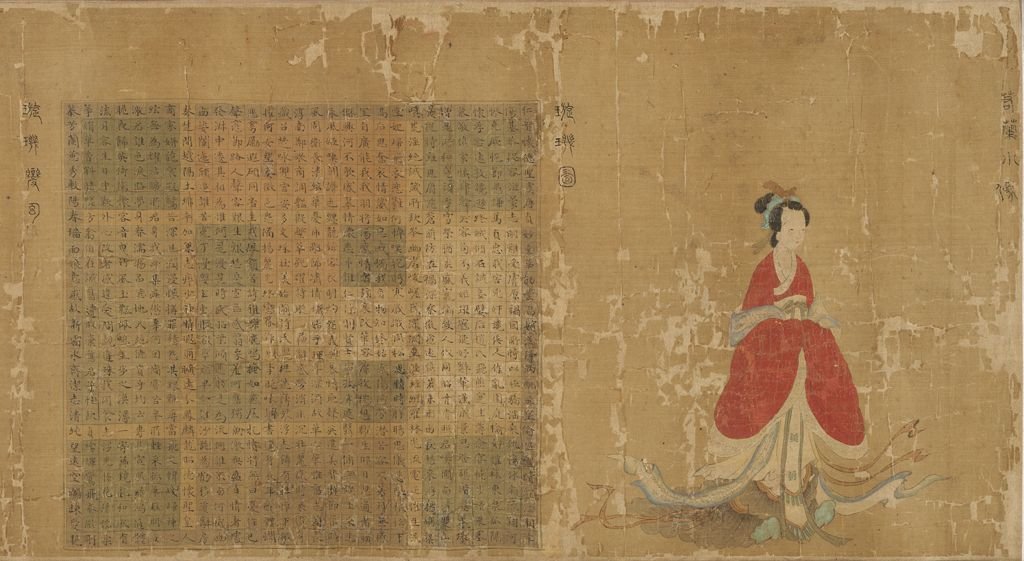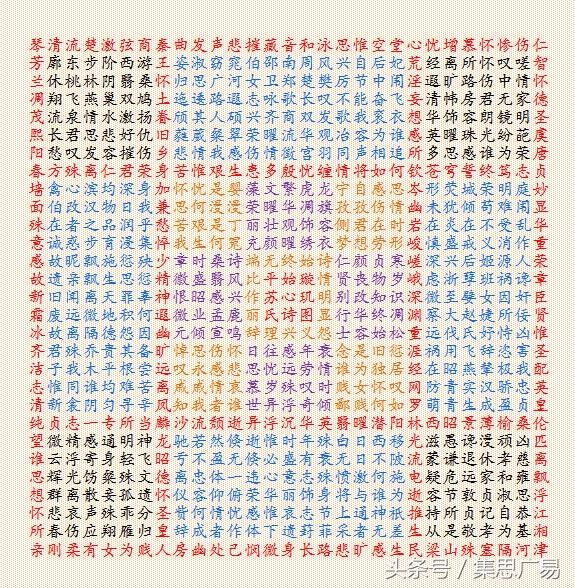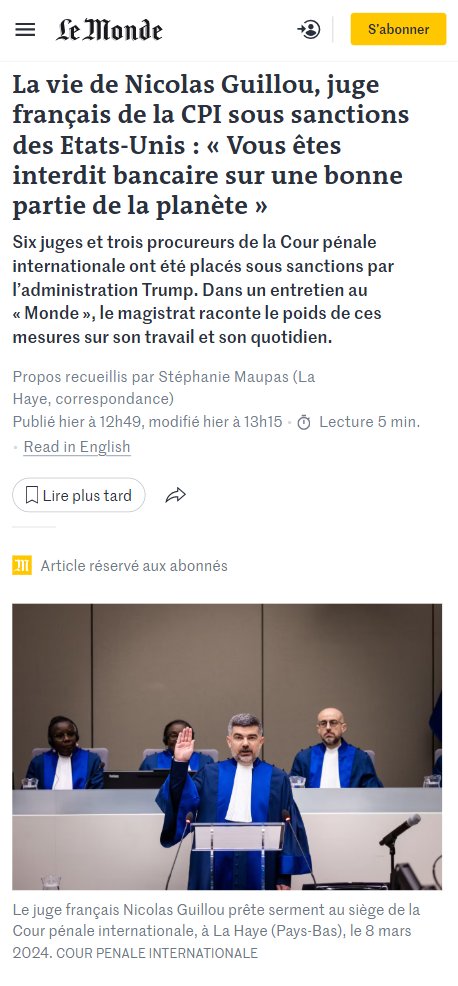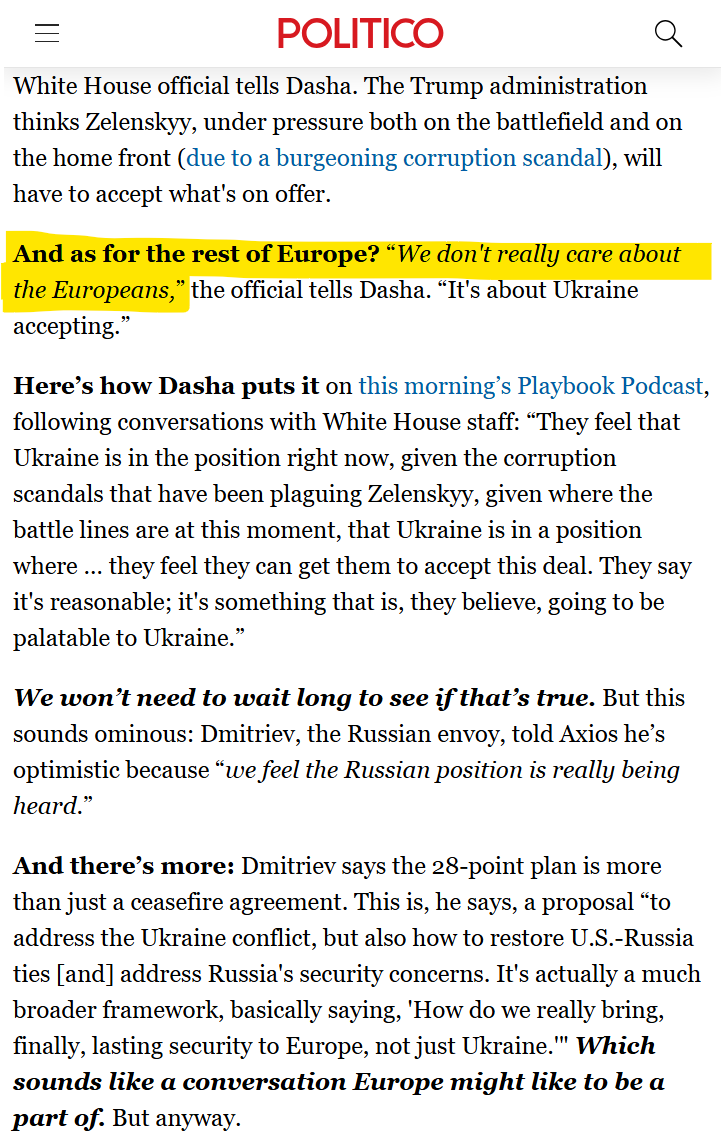I get asked this all the time, so I am reposting my famous thread of all the top strategic thinkers - from Kissinger to Chomsky - who warned for years that war was coming if we pursued NATO expansion, yet had their advice ignored (which begs the question: why?).
The first one is George Kennan, arguably America's greatest ever foreign policy strategist, the architect of the U.S. cold war strategy. As soon as 1998 he warned that NATO expansion was a "tragic mistake" that ought to ultimately provoke a "bad reaction from Russia". 

Then there's Kissinger, in 2014 ⬇️ He warned that "to Russia, Ukraine can never be just a foreign country" and that it therefore needs a policy that is aimed at "reconciliation". He was also adamant that "Ukraine should not join NATO". 





This is John Mearsheimer - probably the leading geopolitical scholar in the US today - in 2015: "The West is leading Ukraine down the primrose path and the end result is that Ukraine is going to get wrecked [...] What we're doing is in fact encouraging that outcome."
This is Jack F. Matlock Jr., US Ambassador to the Soviet Union from 1987-1991, warning in 1997 that NATO expansion was "the most profound strategic blunder, [encouraging] a chain of events that could produce the most serious security threat [...] since the Soviet Union collapsed" 

This is Clinton's defense secretary William Perry explaining in his memoir that to him NATO enlargement is the cause of "the rupture in relations with Russia" and that in 1996 he was so opposed to it that "in the strength of my conviction, I considered resigning". 


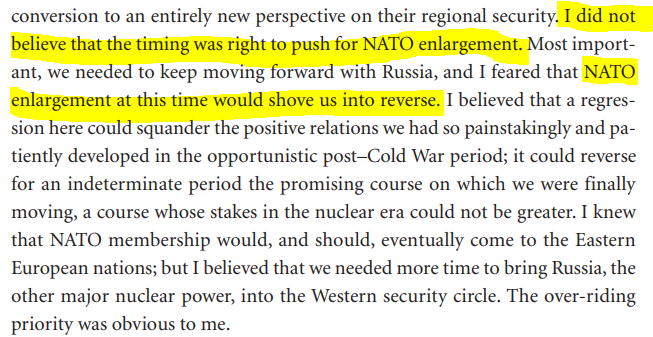


This is Noam Chomsky in 2015, saying that "the idea that Ukraine might join a Western military alliance would be quite unacceptable to any Russian leader" and that Ukraine's desire to join NATO "is not protecting Ukraine, it is threatening Ukraine with major war."
Stephen Cohen, a famed scholar of Russian studies, warned in 2014 that "if we move NATO forces toward Russia's borders [...] it's obviously gonna militarize the situation [and] Russia will not back off, this is existential"
Whole video worth watching:
Whole video worth watching:
This is famous Russian-American journalist Vladimir Pozner, in 2018, who says that NATO expansion in Ukraine is unacceptable to the Russian, that there has to be a compromise where "Ukraine, guaranteed, will not become a member of NATO."
This is famous economist Jeffrey Sachs writing right before war broke out a column in the FT warning that "NATO enlargement is utterly misguided and risky. True friends of Ukraine, and of global peace, should be calling for a US and NATO compromise with Russia." 

This is CIA director Bill Burns in 2008: "Ukrainian entry into NATO is the brightest of all redlines for [Russia]" and "I have yet to find anyone who views Ukraine in NATO as anything other than a direct challenge to Russian interests" 

This is Malcolm Fraser, 22nd prime minister of Australia, warning in 2014 that "the move east [by NATO is] provocative, unwise and a very clear signal to Russia". He adds that this leads to a "difficult and extraordinarily dangerous problem"
theguardian.com/commentisfree/…
theguardian.com/commentisfree/…
This is Paul Keating, 24th prime minister of Australia, writing in 1997 that expanding NATO is "an error which may rank in the end with the strategic miscalculations which prevented Germany from taking its full place in the international system [in early 20th]" 

This is former US defense secretary Bob Gates in his 2015 memoirs: "Moving so quickly [to expand NATO] was a mistake. [...] Trying to bring Georgia and Ukraine into NATO was truly overreaching [and] an especially monumental provocation" 

This is Sir Roderic Lyne, former British ambassador to Russia, warning one year before the war that " [pushing] Ukraine into NATO [...] is stupid on every level."
He adds "if you want to start a war with Russia, that's the best way of doing it."
He adds "if you want to start a war with Russia, that's the best way of doing it."

This is Pat Buchanan - assistant and special consultant to U.S. presidents Nixon, Ford, and Reagan - writing in his 1999 book A Republic, Not an Empire: "By moving NATO onto Russia's front porch, we have scheduled a twenty-first-century confrontation." 

This 2008 Wikileaks cable by Bill Burns - now CIA Director - entitled "NYET MEANS NYET: RUSSIA'S NATO ENLARGEMENT REDLINES" warns that "Russia [viewed] continued eastward expansion of NATO, particularly to Ukraine... as a potential military threat".
wikileaks.org/plusd/cables/0…


wikileaks.org/plusd/cables/0…



This is British journalist @Itwitius, former Sky News foreign affairs editor, in his 2015 book Prisoners of Geography: for Russia "a pro-Western Ukraine with ambitions to join [EU or NATO] could not stand" and "could spark a war". 



In 1997, 50 prominent foreign policy experts (former senators, military officers, diplomats, etc.) sent an open letter to Clinton outlining their opposition to NATO expansion.
It's a "policy error of historic proportions" they write.
armscontrol.org/act/1997-06/ar…
It's a "policy error of historic proportions" they write.
armscontrol.org/act/1997-06/ar…

This is George Beebe who used to be the CIA's top Russia analyst who in December 2021 linked Russia's actions in Ukraine directly to NATO expansion, explaining that Russia "feels threatened" and "inaction on [the Kremlin’s] part is risky" 

This is Ted Galen Carpenter, Cato Institute's senior fellow for defense and foreign policy studies, who wrote in a 1994 book that NATO expansion “would constitute a needless provocation of Russia.”
Today he adds "we are now paying the price for the US’s arrogance".


Today he adds "we are now paying the price for the US’s arrogance".



This is Frank Blackaby, former director of SIPRI, writing in 1996 that "any Russian Government will react, militarily as well as politically to [NATO’s expansion]" and that it makes "Europe drift [...] towards Cold War II". 



This is legendary journalist @johnpilger who wrote this article in 2014.
He describes Ukraine as having become a "CIA theme park", a situation that he foresaw would lead to "a Nato-run guerrilla war"
theguardian.com/commentisfree/…
He describes Ukraine as having become a "CIA theme park", a situation that he foresaw would lead to "a Nato-run guerrilla war"
theguardian.com/commentisfree/…
This is Shiping Tang, one of China's foremost International Relations scholars, writing in 2009 that the "EU must put a stop to [the] U.S./NATO way of approaching European affairs", especially with regards to Ukraine, otherwise it'll "permanently divid[e] Europe". 





This is Ukrainian presidential advisor Oleksiy Arestovych in 2015.
He says that if Ukraine continues down the path of joining NATO "it will prompt Russia to launch a large scale military operation [...] before we join NATO", "with a probability of 99.9%", likely "in 2021-2022".
He says that if Ukraine continues down the path of joining NATO "it will prompt Russia to launch a large scale military operation [...] before we join NATO", "with a probability of 99.9%", likely "in 2021-2022".
Even legendary Soviet dissident Solzhenitsyn saw NATO expansion as "an effort to encircle Russia and destroy its sovereignty".
He said Russia should "in no way dare betray the multi-million Russian population in Ukraine".(nytimes.com/2006/05/03/new… and noblit.ru/node/1041 )

He said Russia should "in no way dare betray the multi-million Russian population in Ukraine".(nytimes.com/2006/05/03/new… and noblit.ru/node/1041 )


And of course just 3 days ago we now have NATO Secretary General Jens Stoltenberg pretty much admitting that war started because of NATO expansion since he revealed Putin proposed not to invade Ukraine if NATO promised no more enlargement, which "of course we didn't sign"... He also said text blank that Russia "went to war to prevent NATO, more NATO, close to his borders".



There you go. This might be the war in history that's been the most foreseen by the most experts - from so many countries - for the longest time.
Incredibly, they were almost universally advocating a clear and feasible way to prevent the war: a commitment to no more NATO enlargement and a neutral Ukraine, like Finland (or Austria) was.
Yet we didn't do that. It really, really makes you wonder...
Incredibly, they were almost universally advocating a clear and feasible way to prevent the war: a commitment to no more NATO enlargement and a neutral Ukraine, like Finland (or Austria) was.
Yet we didn't do that. It really, really makes you wonder...
This also probably belongs here, the then Secretary General of NATO showing an understanding in 1990 that a move eastward was threatening to Russia, and saying that therefore NATO "was ready" not to do it...
https://x.com/RnaudBertrand/status/1800888434749587761?t=xCf6TcqZvrFcO7yIZcuW1A&s=19
• • •
Missing some Tweet in this thread? You can try to
force a refresh


